1ST QUARTER 2022
In this first quarter report, we will review the following topics:
- Behavioral Finance and Views on the Markets
- Other Notable Headlines
- Economic News
As well, we intend to continue our production and releases of special reports on inflation over the next several months. Please look for these articles to explain cause and effect, history, and strategies seeking to mitigate its impact in your portfolio and life. You will also be able to search for “inflation” content in our blog at www.MGFS.net, under the Resources tab.
Behavioral Finance
What’s on your mind? We know that you are sympathetic and compassionate, disturbed by the atrocities being committed, and heartbroken for all those who have suffered and died in Ukraine. Like you, we echo your concerns over the travesties and pure evil bestowed upon the Ukrainian people. From a financial standpoint, we also understand why you are wondering how much these unfortunate and unrelenting circumstances have and may continue to impact our markets and inflation, therefore our lives.
While the war in Ukraine persists, the impact of inflation, the concern over increasing interest rates, and uncertainty about the market’s direction are on our minds. How will my portfolio and goals be affected? How high will interest rates and inflation grow? What is the outlook for economic growth and the markets?
Our Views – We have many!
- The war has had a relatively minor impact on the global economy with a few exceptions. Wheat and oil are significant, and like many other countries, we are feeling it at the gas pump and at the grocery store. The West has managed to cut off Russia’s largest banks, affecting approximately 75% of their capital. As well, they have blocked approximately 50% of their economic productivity. In late March we discontinued importing their oil. Russia exports roughly 19% of the total wheat market (incidentally with Ukraine a total of 28%) and approximately 10% of the world’s oil production. Since the US is no longer energy independent, we are importing some of our shortfalls from Saudi Arabia and other OPEC countries, while releasing 95 million barrels daily from our own reserves. Our oil releases are merely a band-aid. As you can see this barely makes an impact on our supply and prices, bolstering energy inflation which must be watched.
- Inflation will be an ongoing economic story and will be the primary focus for the Fed throughout 2022. It appears there will be somewhere between 4-6 interest rate-hikes this year to remove excessive money in the economy, essentially tightening/raising interest rates, making it more difficult or less prudent to access capital and loans in the future – slowing the economy down. The first rate-hike came on March 16th as the Fed raised its benchmark interest rate by 25 basis points (a quarter of 1%). Given the war in Ukraine, supply shortages, and skyrocketing oil prices, their initial and applauded inclination was to inform the markets and raise rates slowly. With ongoing economic data, the Fed has made it clear they are not afraid to raise rates by .5% throughout the year in order to stave off inflation. Whether we believe it is too little or potentially too much and too late, the Fed is confronted with suppressing inflation while not impeding productivity, with concerns over 1970s-like stagflation. Stagflation = high inflation and low productivity.
- Consumer and corporate fundamentals remain strong: strong cash reserves, debt remains relatively low, earnings have been strong (as we await this quarter’s news), and unemployment is at pre-Covid lows. Consumers are spending because of the last 13 years of unprecedented wealth accumulation in the markets and recently mandated wage increases. These are good signs for 2022. Despite the declining labor force, early retirements and occupational changes for many, the pent-up demand for more goods and services is predominant. Keep in mind – during these periods of uneven market volatility, cash drives earnings and earnings drive stock prices. Yes, we are facing rising prices to support our lifestyles while our portfolios have been appreciating in value, and hopefully will continue to do so.
• Recession outlook – With the tragic and terrible news unfolding in Russia-Ukraine, please remember that geopolitical crises are not new to the markets. History has shown that these events usually have a short-term impact and that markets typically rebound with-in a year unless the economy falls into a recession. We believe that the risk of recession is moderate today but greater for 2023 and will continue to keep you apprised.
• With higher inflation comes higher prices. It is prudent to periodically revisit your household budgets so that there are no surprises to your cash flow today or with future goals such as retirement (as one example for our empty nesters). Too often, we find investors thinking about retirement in the context of their nest egg today and their immediate short-term annual income needs. As advisers we think about the need for income that keeps up with inflation in the middle and later parts of retirement, potentially suggesting alternative considerations and strategies.
• Per City National Rochdale, on average, stocks have historically been positive over the first two years of Fed interest rate tightening cycles.
• Volatility and corrections are normal for markets and are a part of investing. If you have a plan, then stay the course even when the road gets bumpy!
• During times of heightened geopolitical risks such as war, markets are resilient when the economic fundamentals are strong. We believe fundamentals remain strong.
• At the risk of being repetitive, please try to tune out the noise around you! Too much attention can stoke strong fears and emotions. While headline news can be depressing, there are many positives. With proper long-term planning, you will gain clarity on how to think about and prepare for the short-term and the long-term, differently.
• Our inspirational quote this quarter comes from Arnold H Glasow. “Nothing lasts forever, not even your troubles.” This quote has many interpretations, ranging from personal to today’s current events.
Other Notable Headlines
- Covid-19 data shows the prevalence of the latest Omicron variant is high. However, hospitalizations and death rates are low.
- States and many businesses have loosened Covid mask and mandate restrictions, encouraging a return to “normal.”
- Russia’s invasion of Ukraine continues to reverberate around the world. Surrounding NATO countries remain on edge.
- China (in April news) has a zero Covid tolerance policy and has locked down 45 cities, accounting for 40% of its economic output. This can have a significant impact on the global economy.
- Ketanji Brown Jackson was sworn in as the first female, black justice of the Supreme Court.
- Here is another positive one. Major league baseball has resolved their labor differences. So, play ball!
- And while it is not a headline, perhaps it should be noted that SPRING IS HERE! What a difference it makes to see a break in the gray shroud of clouds through March and the earlier part of April!
Economic News
- On Monday March 21st Fed chairman Jay Powell stated that inflation “is much too high” and he will take the “necessary steps” to address it. Didn’t he just say it was under control or, at worst, transitory?
- While the Fed begins to raise interest rates to combat inflation, there is still excessive liquidity in the banking system. On the upside, this liquidity can and often does provide for more credit, expansion, and economic growth in the short-term. On the downside, it can also lead to higher inflation.
- February consumer prices rose at a 10% annual rate. While we know that oil prices surged to over $110 a barrel, the 10-year treasury yield exceeded 2.4%, a full 1% higher than last year (as of this writing it is 2.8%). All indicators suggest that as inflation continues, these interest rates should head higher, depressing current bond values while producing new bonds with increasingly attractive yields.
- The recent weekly AAII Investor Sentiment Survey is quite negative. This is primarily a barometer of whether individual investors are bullish, bearish, or neutral. These recent bearish levels were the highest since August of 2020. Some contrarians look at this sentiment as a bullish indicator for stock prices to appreciate.
- Per economist Robert Genetski, real economic growth should range from 2-3% in 2022, which is much lower than 2021’s economic recovery rate of 5.6%.
- In a high inflationary environment, news and price stability are dynamic. While we are doing our best to reach out to you with various forms of communication, please reach out to us with any questions or concerns. As always, we are here to help!
With gratitude to serve your needs…
Barry E Moschel, Partner, RICP®, CLU®, ChFC®, CPA
Adam L Schwartz, Partner, CFP®, NSSA®
Tom Manno, Partner, CFP®, CPFA™




